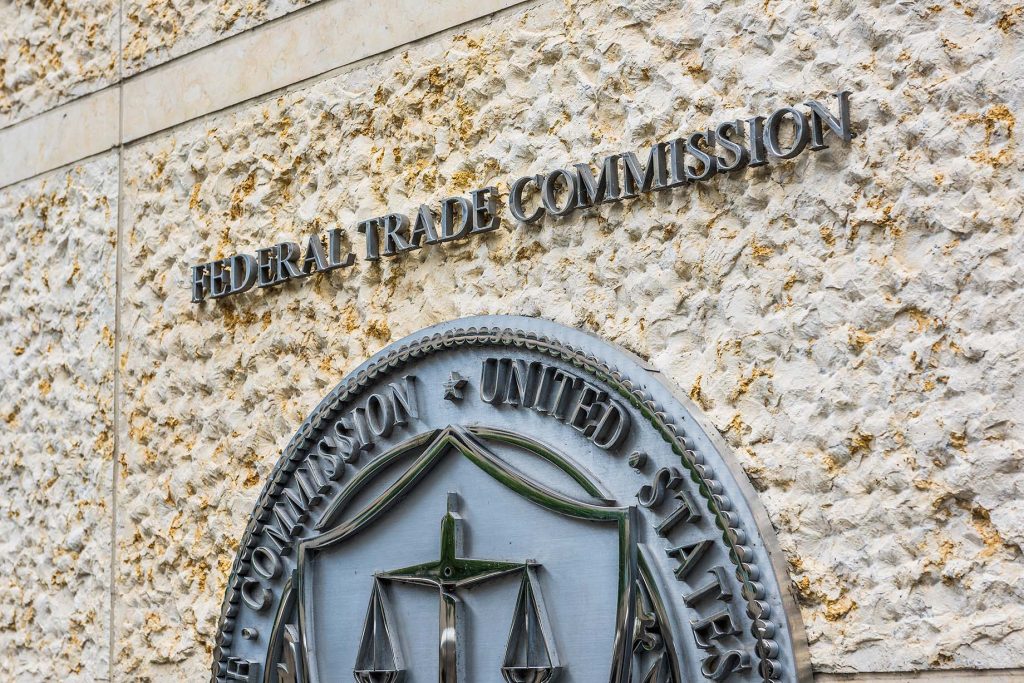“Usually the activists are trying to influence Congress or trying to influence the agencies from the outside,” says Mr. Greer. “But I think this has opened a doorway where people have started to see … you can actually get your people in the government.”
The initiative also reflects a shift in the balance of power between America’s branches of government. As Congress has become increasingly gridlocked in recent years, both parties have responded by looking to the White House and executive agencies like the EPA or the Department of Homeland Security to enact policy.
When former President Barack Obama met with resistance from a GOP-led Congress, he famously said, “I’ve got a pen and I’ve got a phone” – referring to his ability to make rules through executive power. In his first seven years, he pushed through 560 major regulations – 50% more than President George W. Bush, The New York Times reported. Mr. Biden, who served as vice president during that time, got off to an even faster start than his former boss, issuing more than twice as many executive orders as Mr. Obama did in his first 100 days.
“There has been this massive shift in the policy process away from Congress and toward the executive branch,” says Dr. Galston. “The Trump administration was well aware of this. And on the other end of the spectrum, the progressives have clearly been going to school.”
A Herculean Effort
Before it was even clear who would win the Democratic nomination, Stephanie Taylor, co-founder of the Progressive Change Institute, tasked a group of full-time researchers with combing through the Plum Book, a list of more than 7,000 positions in the federal government that can be filled by appointment rather than a competitive hiring process, including 1,700 presidential appointees. They were less interested in splashy positions than powerful low-profile ones – people who could write regulations for an agency, or head a smaller office.
“There’s not a tremendous amount of discussion about who’s going to be deputy undersecretary for farm production and conservation – but we’re really interested in that,” says Ms. Taylor, who calls the project a herculean effort. From that research, her group published a 90-page guide that detailed the budgets, number of employees, and authority of 330 selected agencies and offices, which represent about a third of the federal government.
“Every progressive needs to understand the federal government in order to understand how to influence it – where the power lies, and which positions have control over the issues that we care about and work on,” they wrote. “We also need to understand the federal government better in order to fully understand (and reverse) the attacks on its functions.”
Together with Jeff Hauser, executive director at the Center for Economic and Policy Research’s Revolving Door Project, which scrutinizes executive branch appointees for corporate ties, they started soliciting recommendations for who could best fill such positions. They cast a wide net, involving more than five dozen groups whose focus ranged from racial justice to agriculture to scrutinizing corporate power. Each group could endorse others’ nominations, giving a gauge of the depth of each candidate’s support.
When Mr. Biden won the election, they handed over more than 700 names.
The two departments where they landed the most people, with nine hires each, were the Department of Labor and the U.S. Department of Agriculture (USDA). They also secured nine economic advisory positions to the president, including Heather Boushey and Jared Bernstein, whom Ms. Taylor says she is confident had a voice in shaping the massive $1.9 trillion COVID-19 relief bill that Democrats fast-tracked through Congress this spring.
“It feels like there is a lot of alignment in where progressives want to go and where Biden wants to go, whereas during the Obama administration there were a lot of very public fights,” says Ms. Taylor, who also cofounded the Progressive Change Campaign Committee, a million-member grassroots organization that has long supported Senator Warren. “Now the question is whether the Biden administration personnel will use the full scope of their power to get done what needs to get done, and tackle the full environmental and economic urgency of the moment.”
Return of Trustbusting
Many of the progressive hires represent a shift in thinking about the role of big corporations in society. A number are proponents of increasing and expanding antitrust regulation and enforcement, in order to prevent firms from dominating an industry.
Proponents see it as the dawn of a collective realization that power has become too concentrated in the hands of business, rather than the people.
“In some ways, the most important thing is for people to wake up to the fact that we’ve been thinking and living a lie for the last 40 years – a lie about the nature of power,” says Barry Lynn, executive director of the Open Markets Institute. He penned a Washington Monthly article titled “How Biden Can Transform America,” in which he argued that the president could enact his agenda through anti-monopoly tools – without waiting for Congress.
Arguably, the most consequential hire is Ms. Khan – “Jeff Bezos’ least favorite person in the world,” quips Mr. Hauser. Over the past two years, she investigated companies such as Apple, Amazon, and Facebook as counsel to a congressional investigation into competition in digital markets. Now, at age 32, she is carrying that work forward as the youngest chair of the FTC, an agency born during another antitrust boom over a century ago that, in the name of protecting American consumers, reviews corporate mergers in markets ranging from meat to social media.
On July 1, Chairwoman Khan held the agency’s first public meeting in decades, at which she advocated a series of reforms to strengthen and streamline the FTC’s ability to investigate certain industries, including technology platforms, health care, and pharmaceuticals. She led a 3-2 vote to approve the changes along party lines, with one of the GOP commissioners issuing a lengthy statement of dissent. Supporters were elated; one head of a watchdog group said that that one meeting represented more progress than had been achieved in the past quarter century.
Other key antitrust proponents in the administration include Tim Wu, a former Columbia law professor like Ms. Khan, who joined the White House’s National Economic Council and serves as a special assistant to the president for technology and competition policy. Mr. Wu has reportedly been a driving force in shaping the antitrust executive order that is expected to come as soon as this week.
And K. Sabeel Rahman, who appeared alongside Ms. Khan at a 2019 panel that advocated putting more guardrails on capitalism, has been appointed counsel in the Office of Information and Regulatory Affairs (OIRA), the administration’s regulatory gatekeeper.
“Progressives have long identified this little agency as wielding shocking amounts of power,” says Mr. Hauser – something he says corporate America has leveraged to its advantage.
Last year, former Obama Department of Labor official Sharon Block advocated “reimagining” OIRA to reduce corporations’ outsize influence on regulations. Now she is the office’s No. 2, and is currently serving as acting administrator until President Biden appoints a new administrator, which requires Senate confirmation.
Susan Dudley, who chaired the office for two years during the George W. Bush administration, took issue with Ms. Block’s vision for OIRA in a Forbes article about the “seismic shift” in Mr. Biden’s approach to regulation. She says that the office’s overall direction under Ms. Block appears to be one of aggressive implementation of new regulations – without, in her view, sufficient analysis of the trade-offs.
“They seem to feel the need to move very quickly with more regulations,” says Professor Dudley, who adds that political appointees in OIRA – an office with about 50 career staff – wield significant influence.
Why Big Ag Is a Focus
Another focus for those looking to break up corporate monopolies is the Department of Agriculture.
Joe Maxwell, a livestock farmer and former lieutenant governor of Missouri, believes Big Ag poses at least as big a threat to American democracy as Big Tech. When four companies control 85% of the beef industry, they can hire workers for cheap, force farmers to sell their animals at a loss, and gouge customers at the grocery store. In Mr. Maxwell’s eyes, they’re hollowing out rural America, undermining the lives of not only their employees but whole communities, including rural Black communities.
“We place these corporations on the same level as a threat to our democracy and our way of life as … the Facebooks and Googles,” says Mr. Maxwell, president of Farm Action Fund, which also recommended candidates for the progressive personnel project.
He’s long wanted someone in Washington to do something about it – and now he feels like it’s finally happening. In particular, he points to a June 11 announcement from the USDA, promising three new rules that he sees as crucial to breaking up the power of agricultural corporations and enforcing the 100-year-old Packers and Stockyards Act, designed to protect farmers and ranchers from “unfair, deceptive, and anti-competitive practices in the meat markets.”
At a July 6 briefing, White House Press Secretary Jen Psaki said that the president’s forthcoming executive order on competition would build on those USDA initiatives, including more transparent meat labeling so that foreign companies would no longer be able to ship beef to the U.S. for processing and then label it “Product of USA.”
“Liberals Are Great Dreamers”
Some such initiatives are already facing pushback in the courts. One federal judge recently dismissed two antitrust cases against Facebook, though the FTC has 30 days to file an amended complaint. And another federal judge temporarily blocked the COVID-19 relief bill’s $4 billion package that was seen as a form of reparations for Black farmers, which were estimated by a Tufts University study to have lost $120 billion in farmland value due to the USDA’s decades of racial discrimination. The judge acknowledged the department’s past racial discrimination but took issue with the package’s race-based qualification for aid.
Of course, it’s still too early to know just how much influence this progressive project will ultimately have within the vast executive branch and beyond.
Eighty-odd people seem unlikely to tip the scales of a massive federal bureaucracy, says Paul C. Light, professor of public service at New York University. “It will certainly influence some of the conversations, but it’s a small number in a big thicket of layers and competition for voice and action,” he says.
But there’s another aspect of the personnel project that intrigues him, and that is the focus on implementation.
“Liberals are great dreamers. The question is whether they are doers,” he says. With this effort, progressives are showing that they “understand that there are bureaucratic levers – and you can pull them, and you can get things done.”



